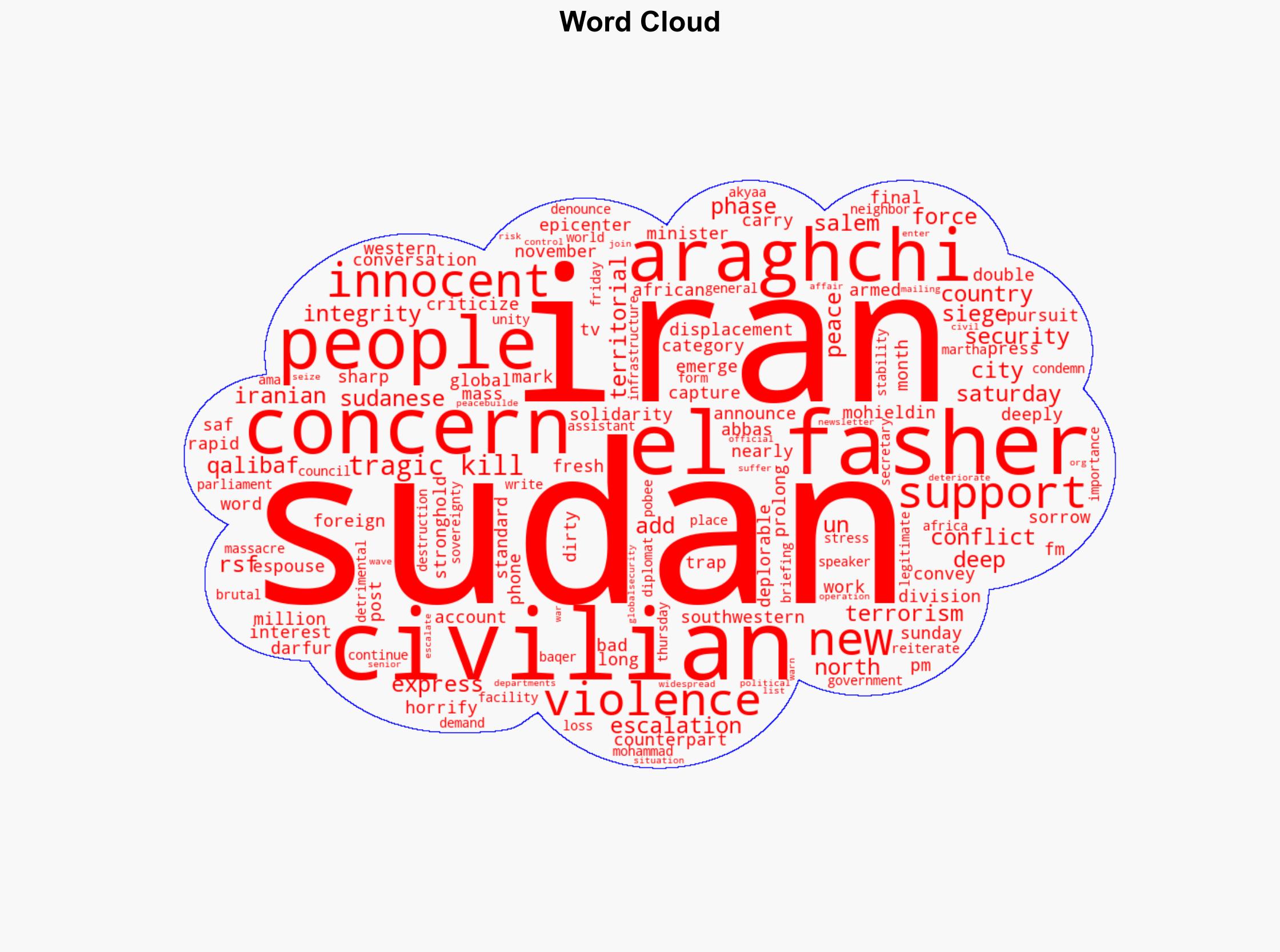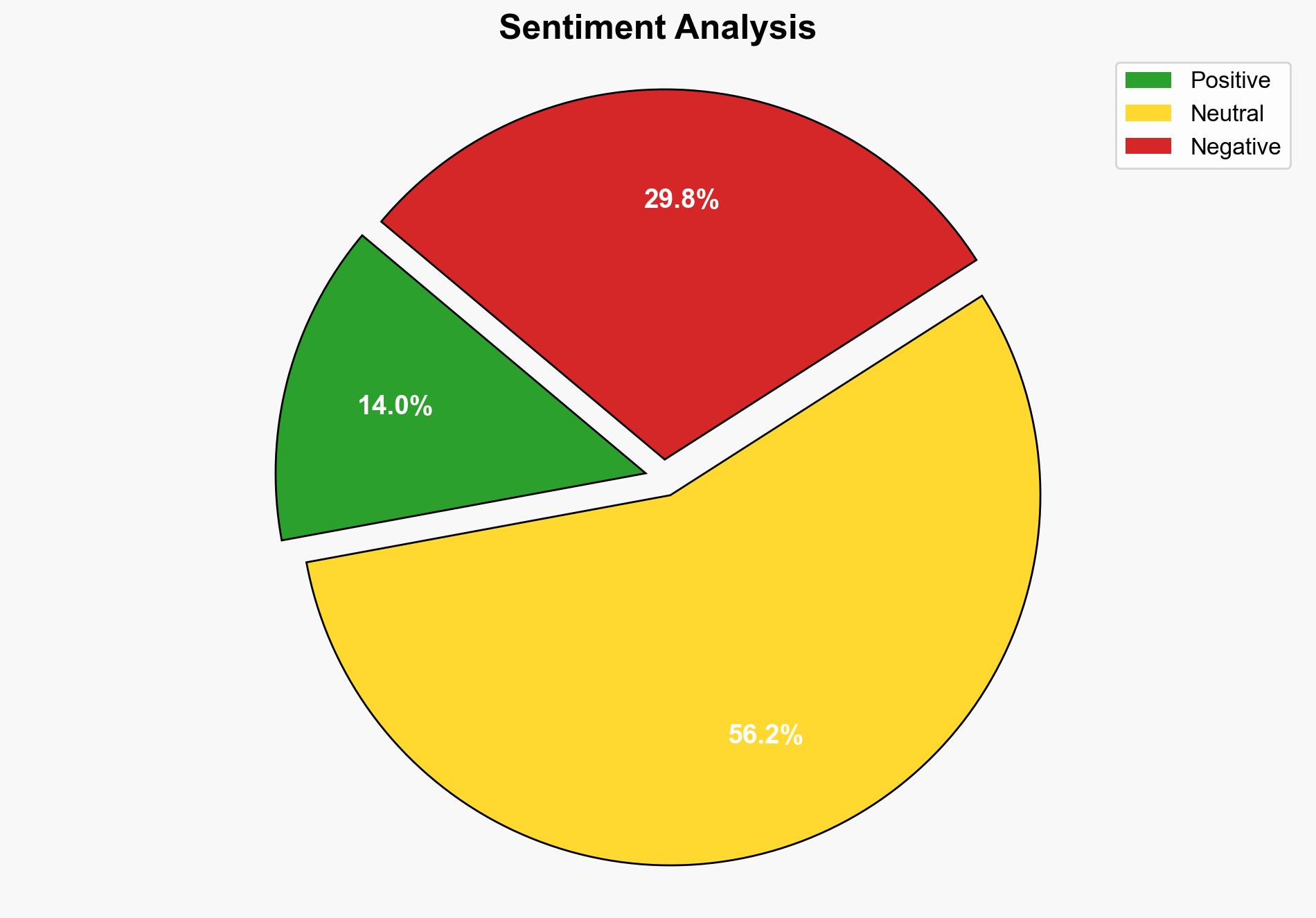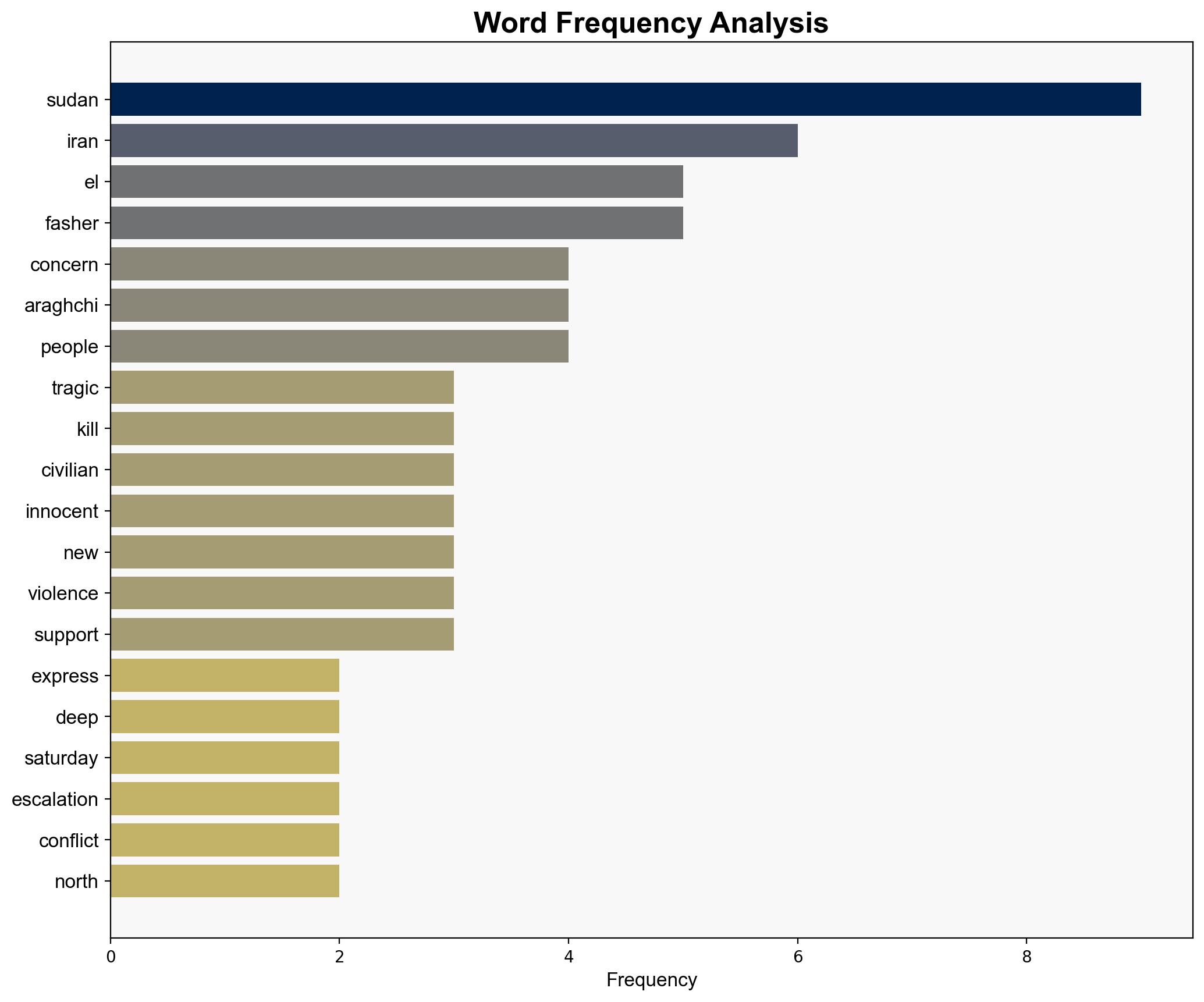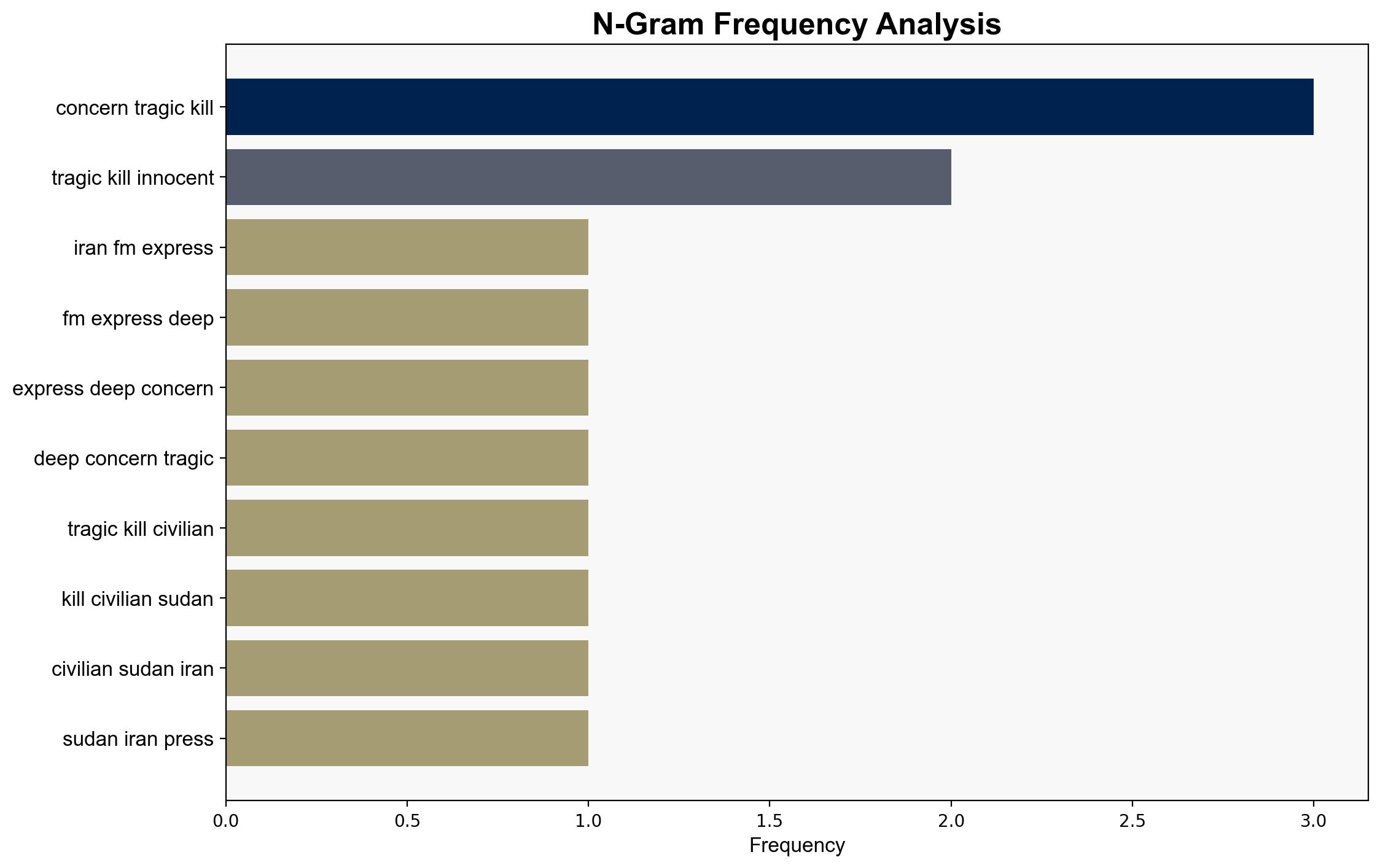Iran FM expresses deep concern over ‘tragic’ killing of civilians in Sudan – Globalsecurity.org
Published on: 2025-11-03
Intelligence Report: Iran FM expresses deep concern over ‘tragic’ killing of civilians in Sudan – Globalsecurity.org
1. BLUF (Bottom Line Up Front)
The most supported hypothesis suggests that Iran’s expression of concern over the situation in Sudan is primarily a strategic move to position itself as a regional peace advocate while criticizing Western policies. Confidence level: Moderate. Recommended action: Monitor Iran’s diplomatic engagements and any shifts in regional alliances or rhetoric that may influence the conflict in Sudan.
2. Competing Hypotheses
1. **Hypothesis A**: Iran’s statement is a genuine expression of humanitarian concern and a call for international solidarity in addressing the crisis in Sudan.
– **Supporting Evidence**: Iran’s consistent rhetoric on supporting sovereignty and territorial integrity aligns with its historical stance on regional conflicts.
– **Contradictory Evidence**: Iran’s criticism of Western double standards suggests a political motive beyond humanitarian concerns.
2. **Hypothesis B**: Iran is using the situation in Sudan to criticize Western policies and strengthen its geopolitical influence in Africa by aligning with Sudanese interests.
– **Supporting Evidence**: The emphasis on Western double standards and the strategic mention of terrorism implies a broader geopolitical agenda.
– **Contradictory Evidence**: Lack of direct evidence linking Iran’s statement to specific geopolitical maneuvers in Africa.
Using the Analysis of Competing Hypotheses (ACH) 2.0, Hypothesis B is better supported due to the strategic language used and Iran’s historical pattern of leveraging regional conflicts to critique Western influence.
3. Key Assumptions and Red Flags
– **Assumptions**: Iran’s statements are assumed to reflect its official policy without hidden agendas. Western governments are assumed to have a uniform stance on Sudan.
– **Red Flags**: The absence of specific actions accompanying Iran’s statements could indicate a lack of genuine commitment. The focus on Western double standards may be a diversion from Iran’s own regional ambitions.
– **Blind Spots**: Potential internal Iranian political dynamics influencing foreign policy are not addressed.
4. Implications and Strategic Risks
– **Geopolitical Risks**: Iran’s involvement could complicate international diplomatic efforts in Sudan, potentially leading to increased regional tensions.
– **Economic Risks**: Prolonged conflict in Sudan may disrupt regional trade routes, affecting economic stability in North Africa.
– **Psychological Risks**: Iran’s rhetoric may embolden other regional actors to challenge Western policies, increasing polarization.
5. Recommendations and Outlook
- Monitor Iran’s diplomatic activities and public statements for shifts in rhetoric or policy that may impact Sudan.
- Engage with regional partners to ensure a coordinated response to the Sudan crisis, minimizing Iran’s influence.
- Scenario Projections:
- Best Case: Iran’s involvement leads to constructive dialogue and a peaceful resolution in Sudan.
- Worst Case: Iran’s actions exacerbate tensions, leading to further regional instability.
- Most Likely: Iran continues to use the situation to critique Western policies without significant change in the conflict dynamics.
6. Key Individuals and Entities
– Abbas Araghchi
– Mohieldin Salem
– Mohammad Baqer Qalibaf
– Martha Ama Akyaa Pobee
7. Thematic Tags
national security threats, geopolitical strategy, regional influence, humanitarian concerns




